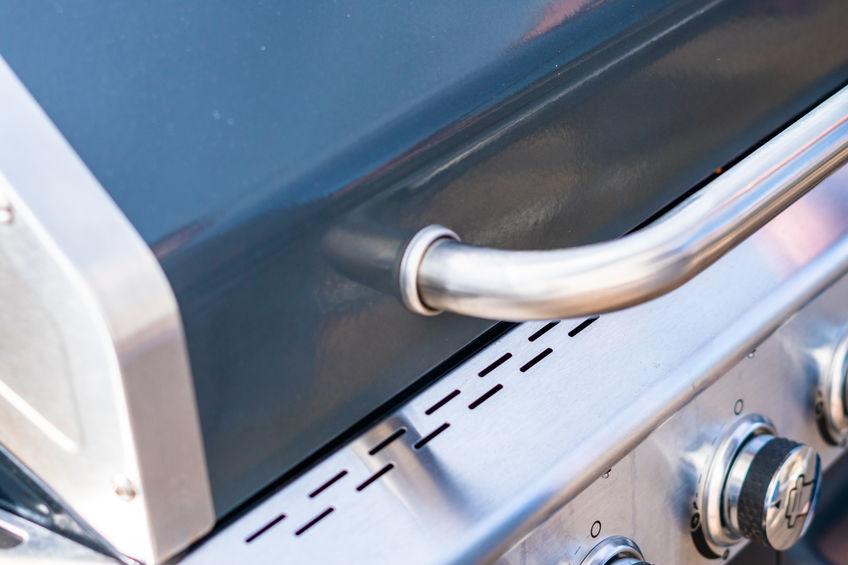
Using a propane grill indoors may seem convenient, especially during harsh weather, but it poses significant safety risks.
Propane grills are designed for outdoor use and should not be used indoors due to the dangers of carbon monoxide poisoning and fire hazards.
Those interested in indoor grilling might seek safer alternatives, such as electric grills or stovetop options, which provide the same cooking benefits without the associated risks.
Indoor grilling can be a valid option for many people, especially those living in apartments or areas with limited outdoor space.
With innovations in grill design, electric grills generally offer a practical way to enjoy grilled foods inside while ensuring a safer cooking environment.
It’s essential for anyone considering indoor grilling to explore these options for both safety and convenience.
Exploring facilities that allow indoor grilling can also guide individuals in making informed decisions.
Understanding the differences between propane and electric grills will help ensure a satisfying culinary experience without compromising safety.
Understanding Propane Grills
Propane grills are popular for their convenience and versatility in outdoor cooking.
They utilize propane gas to generate heat, offering quick heating times and adjustable cooking temperatures.
This section explores the components and functionality of propane grills, as well as a comparison with other grill types.
Components and Functionality
A propane grill consists of several key components, including a propane tank, burners, a cooking surface, and igniters.
The propane tank stores the gas, while burners are responsible for distributing heat.
The cooking surface, often made of stainless steel or cast iron, supports food during grilling.
Igniters can be piezoelectric or electronic, providing a spark to light the burners easily.
Many propane grills also have side burners and shelves for additional cooking and prep space.
These grills typically offer adjustable heat settings, allowing for both high-heat searing and low-temperature cooking.
Proper safety measures include checking for leaks in the gas lines and ensuring adequate ventilation during use.
Comparing Propane to Other Types of Grills
When comparing propane grills to electric and charcoal grills, several factors come into play.
Propane grills heat up quickly and maintain consistent temperatures, while electric grills require an outlet, limiting portability.
In contrast, charcoal grills provide a unique flavor but require longer preparation times due to the need for charcoal lighting and ash cleanup.
Cost is another consideration.
Although propane grills often have higher upfront costs due to the grill and tank, they offer convenience with quick cooking times.
Charcoal grills tend to be less expensive but require ongoing purchases of charcoal.
Maintenance is also a factor; propane grills generally require regular cleaning of burners and surfaces, while charcoal grills necessitate ash removal and more intensive cleaning.
Each grill type has merits, catering to different cooking preferences and styles.
Health and Safety Concerns
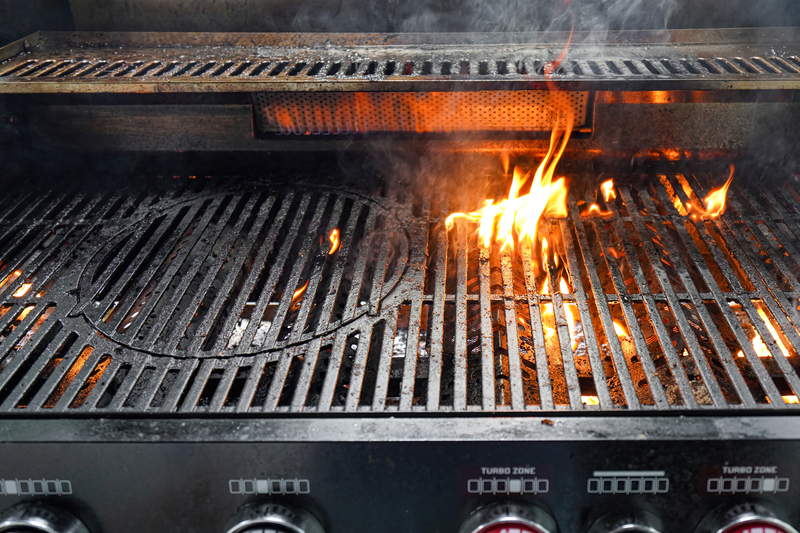
Using a propane grill indoors raises significant health and safety risks.
Two primary concerns are carbon monoxide poisoning and fire hazards.
Understanding these risks is crucial for anyone considering using a propane grill in an indoor environment.
Risks of Carbon Monoxide
Propane grills emit carbon monoxide (CO), a colorless and odorless gas that can be fatal in enclosed spaces.
When propane is burned, CO is produced, especially if there is inadequate ventilation.
Individuals who inhale CO may experience symptoms such as headaches, dizziness, confusion, and lethargy.
Prolonged exposure can lead to severe health complications or death.
To mitigate these risks, it’s essential to maintain proper ventilation.
Open windows and use exhaust fans to ensure fresh air circulation.
Investing in a CO detector can also provide an added layer of safety.
Fire Hazards and Prevention
Propane grills are designed for outdoor use, and using them indoors poses fire hazards.
Flammable materials and high heat can lead to accidental fires if proper precautions are not taken.
To prevent fires, keep the grill away from walls and furniture.
Never leave a grill unattended while in use, and ensure it is placed on a stable surface.
It’s also vital to have a fire extinguisher nearby.
Practicing safe handling of propane tanks and checking for leaks can reduce the likelihood of dangerous situations arising.
Always prioritize safety when considering indoor grilling options.
Indoor vs Outdoor Grilling
Indoor and outdoor grilling present distinct differences that can affect cooking experience and safety.
Each environment comes with its own set of considerations, especially regarding air quality and equipment limitations.
Differences in Cooking Environment
Outdoor grilling typically allows for a larger cooking space and accommodates various fuel types, including propane, charcoal, and wood.
This environment often features higher heat levels and more robust flavors due to open-air cooking.
Indoor grilling, on the other hand, is usually confined to smaller spaces, such as kitchens or designated grilling areas.
Indoor grills may include electric models or stovetop units, limiting cooking capacity and versatility.
Grilling indoors requires careful consideration of safety features and must comply with building codes and regulations to prevent hazards.
The choice of grill type significantly impacts the overall grilling experience.
Impact on Air Quality and Ventilation
Using a propane grill indoors poses significant risks to air quality due to potential exhaust fumes.
Propane combustion releases carbon monoxide, which can build up in poorly ventilated spaces.
Proper ventilation systems are essential when considering indoor grilling.
They help to mitigate the harmful effects of smoke and gas emissions.
Without adequate ventilation, indoor air quality can decline, affecting health and safety.
In contrast, outdoor grilling generally allows smoke and fumes to disperse freely, reducing the risk of harmful inhalation.
Grilling outdoors also tends to eliminate lingering odors inside living spaces.
Overall, careful planning and choice of environment significantly impact the grilling experience.
Ventilation Requirements
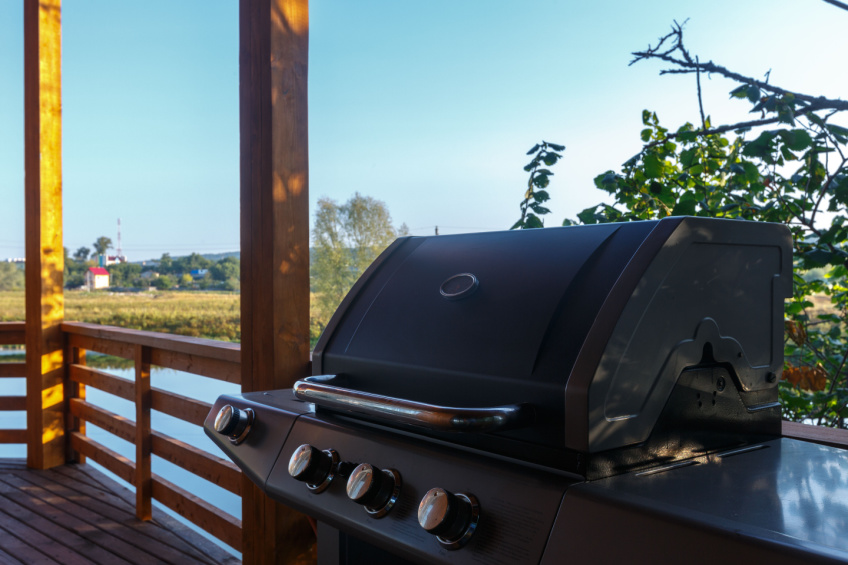
Proper ventilation is essential when using a propane grill indoors.
It helps mitigate the risks associated with carbon monoxide and other harmful gases.
Ensuring adequate airflow can protect health and improve cooking conditions.
Setting Up Adequate Ventilation Systems
To create a safe grilling environment indoors, it is crucial to set up adequate ventilation systems.
An effective approach includes using exhaust fans and opening windows.
Proper exhaust systems can help to remove harmful gases and bring in fresh air.
Recommended Equipment:
- Exhaust fans: Install high-capacity fans in the kitchen area.
- Open windows: Keep windows ajar to allow for outward airflow.
- Air purifiers: Supplement with air purifiers featuring HEPA filters.
When determining the ventilation system requirements, consider the grill size and the cooking space area.
A well-designed ventilation setup enhances safety.
Best Practices for Maintaining Air Flow
Maintaining airflow around the propane grill requires diligence.
Regular maintenance of ventilation systems is vital for optimal performance.
Check and clean filters on exhaust fans to ensure they operate efficiently.
Additional Tips:
- Monitor airflow: Use a carbon monoxide detector to track air quality.
- Avoid obstructions: Keep the area around the grill clear of objects that may impede airflow.
- Check fan operation: Ensure exhaust fans run smoothly before and during grilling.
These practices contribute to a safer cooking environment by promoting steady air circulation and reducing harmful gas accumulation.
Grill Features and Safety Equipment
Safety is a crucial aspect when considering the use of propane grills indoors.
Understanding the features of these grills and the necessary safety equipment is vital for preventing accidents and ensuring a safe grilling experience.
Inbuilt Safety Mechanisms of Propane Grills
Many propane grills come equipped with various safety mechanisms.
These features help mitigate risks associated with gas leaks and fire hazards.
- Automatic Shut-off Valves: These valves are designed to stop the gas flow if a flame goes out, preventing gas accumulation.
- Flame Failure Devices: They detect when the flame is not present and automatically shut off the gas supply, enhancing safety.
- Thermocouples: This mechanism monitors the grill’s temperature and can shut off the gas if it exceeds a certain threshold.
These safety features significantly reduce the likelihood of accidents.
It’s essential to ensure that these mechanisms are functional before use.
Essential Safety Equipment for Indoor Grilling
When grilling indoors, specific safety equipment is necessary to prevent hazards.
Here are key components to consider:
- Carbon Monoxide Detector: This is crucial for detecting dangerous gas build-up. Individuals should ensure a functioning CO detector is installed nearby.
- Fire Extinguisher: A Class B fire extinguisher, suitable for flammable gases, should be readily available in case of emergencies.
- Ventilation Equipment: Proper ventilation is necessary to avoid smoke build-up and ensure fresh air circulation. Exhaust fans or open windows are excellent options.
- Heat-resistant Surfaces: Grilling should occur on surfaces that can withstand high temperatures, preventing fire risks.
By having this safety equipment in place, individuals can significantly reduce risks associated with indoor grilling.
Grilling Techniques for Indoor Cooking
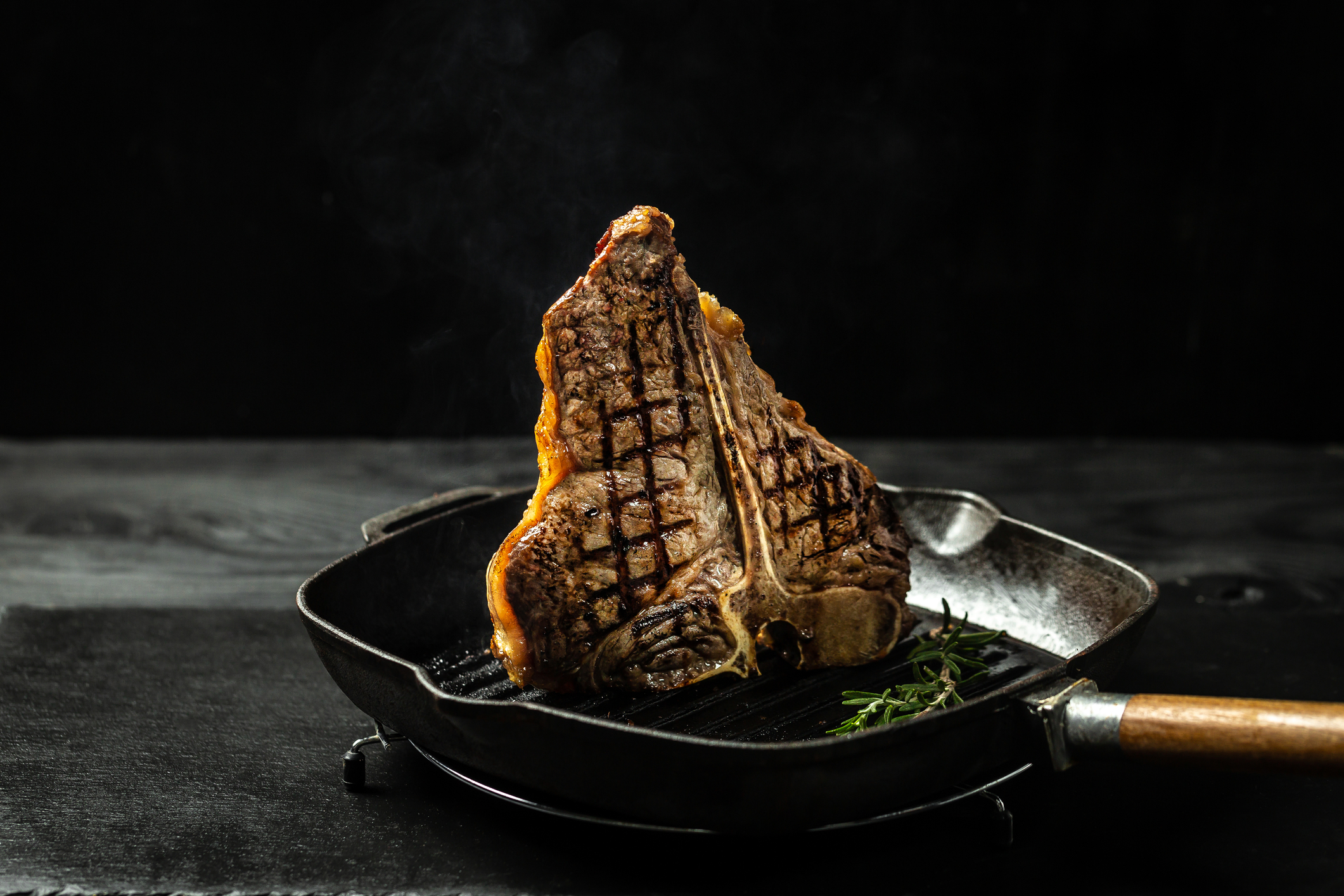
Successful indoor grilling requires careful temperature control and an understanding of alternative methods.
Mastering these techniques can yield delicious results while ensuring safety.
Temperature Control and Monitoring
Temperature control is crucial for indoor grilling.
The ideal cooking temperature varies depending on the type of food being grilled.
Most meats cook well at temperatures between 350°F to 450°F.
To achieve this indoors, individuals should use a digital thermometer to monitor internal temperatures accurately.
Adjusting the heat settings on electric grills or stovetops helps maintain consistency.
Grill grates can also affect heat distribution.
Using cast iron or non-stick grill pans allows for effective heat retention.
Keeping a lid on the grill pan can help maintain even temperatures, simulating outdoor grilling.
Alternative Indoor Grilling Methods
For those unable to use traditional propane grills indoors, several alternatives exist.
Electric grills provide a safe option, using electric heating elements to produce grill marks without combustion fumes.
The ever-popular George Foreman Indoor/Outdoor standing grill gives you the traditional grilling experience without any of the danger.
It features a non-stick coating, that is durable and easy to clean.
Heats up in only 10 minutes and the stand is removable and could be used on a counter.
Has 40 square inches of circular grilling surface that is enough space for 15 servings.
Grill pans are another versatile choice.
This Nonstick Grill Pan is a durable and versatile tool that is particularly well-suited for indoor grilling.
Its nonstick surface, even heat distribution, and user-friendly design make it a valuable addition to any kitchen.
These simple pans have raised ridges that mimic grill grates.
They can be used on stovetops and are ideal for apartment living.
Exploring these methods can enhance indoor grilling experiences while ensuring safety and flavor.
Maintenance and Care for Propane Grills
Proper maintenance ensures the longevity and efficiency of a propane grill.
Regular cleaning and timely inspections can prevent issues and maintain performance.
Taking steps to prevent rust and wear also plays a significant role in keeping the grill in top condition.
Regular Cleaning and Inspection
Cleaning a propane grill involves several key steps.
Start by removing the grill grates and cleaning them with warm, soapy water.
A nylon brush can help eliminate stuck-on food particles.
Inspect the burners for clogs or debris, using a thin wire to clear any blockages.
Also, examine the propane tank for leaks by applying a soap and water solution; look for bubbles that indicate escaping gas.
It’s advisable to check the hoses for cracks or wear.
Replace any damaged components promptly to minimize safety risks.
Regular checks every few months will ensure optimal performance.
Preventing Rust and Wear
Rust can significantly impact a propane grill’s functionality.
To prevent rust, it’s essential to keep the grill covered when not in use.
Using a weather-resistant cover protects it from rain and moisture.
Applying a layer of cooking oil to the grill grates before storage can help stave off rust.
Additionally, always dry the grill completely after cleaning to avoid moisture buildup.
Routine inspections for wear on hoses and seals are important.
If any components show signs of corrosion, they should be replaced immediately to ensure safe operation.
Taking these precautions will prolong the lifespan of the grill and enhance safety.
Legal and Insurance Considerations
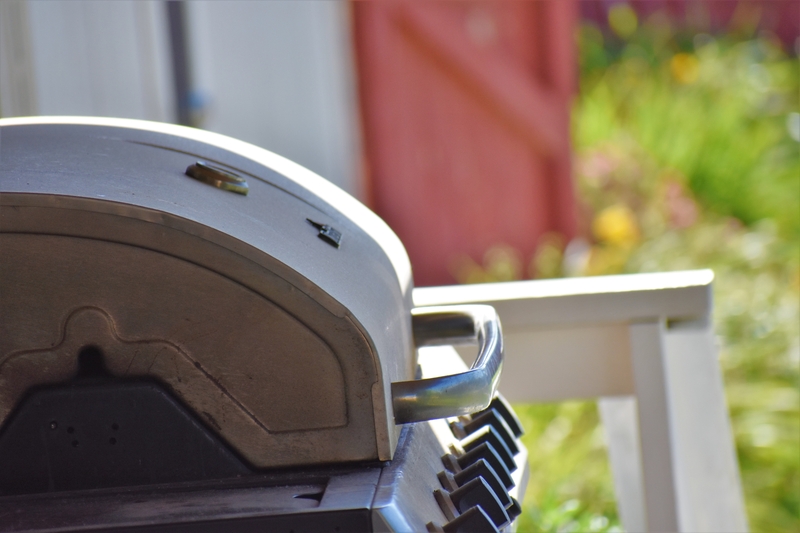
When using a propane grill indoors, understanding the applicable laws and insurance implications is crucial.
There are strict regulations governing propane use in enclosed spaces, and potential insurance claims may hinge on adherence to these rules.
Regulations on Indoor Propane Grill Use
Most jurisdictions prohibit using propane grills indoors due to safety hazards.
Key regulations include fire codes and safety standards outlining proper ventilation and equipment requirements.
Ignoring these regulations can lead to significant risks, including gas leaks and fire hazards.
In many areas, conducting indoor grilling without proper ventilation or safety measures may result in fines or other legal consequences.
It’s essential to check local laws before using a propane grill inside.
Some municipalities may require special permits for using gas appliances indoors.
Adherence to manufacturer guidelines and safety precautions is paramount to minimize danger.
Insurance Coverage for Grilling Accidents
Insurance coverage can vary widely regarding grilling accidents involving propane equipment.
Many homeowners’ policies may exclude claims arising from illegal or improper use of appliances.
If an indoor grilling accident occurs, coverage for damage or injuries may depend on compliance with both local regulations and manufacturer recommendations.
Policyholders should consult their insurance agents to clarify their coverage concerning propane use indoors.
It is beneficial to document safety measures taken, such as proper ventilation and regular maintenance, as this could influence claim outcomes.
Understanding these details aids in navigating potential insurance challenges associated with grilling indoors.
